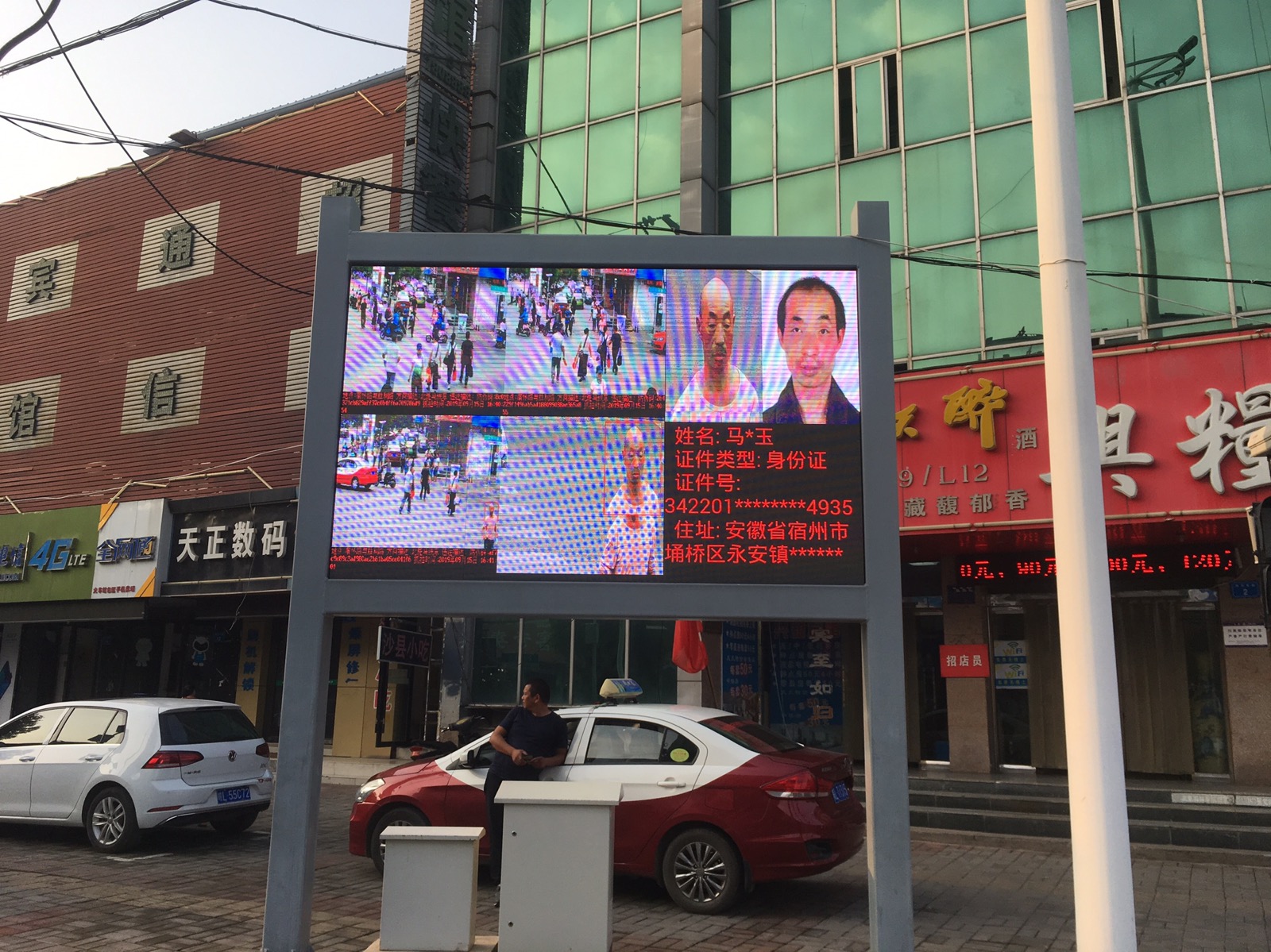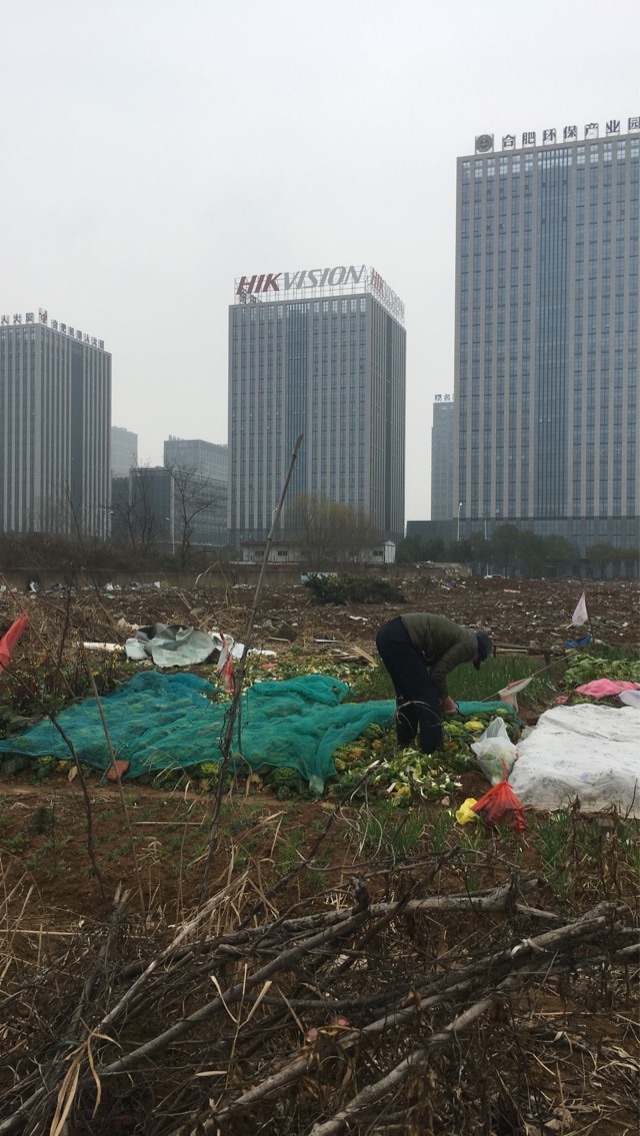Opportunity and anxiety at the center of China’s surveillance industry
Anhui province is at the center of China's surveillance industry. The people there have mixed feelings about this.

For decades, Anhui province’s development has lagged behind surrounding provinces. As nearby regions like Shanghai and Zhejiang have become centers for finance and business, large parts of Anhui still rely on agriculture and steel production, much as they did 50 years ago.
Yet the inland province is now an unlikely pacesetter in China’s drive to dominate artificial intelligence. Massive advanced technology investment is fueling economic growth. At the same time, companies that receive these investments are helping turn Anhui’s residents into test subjects for a government surveillance system that publicly names and shames troublemakers — even those running behind on their mortgage repayments.
For many of the students in the province’s prestigious STEM universities, who will be the next generation of AI pioneers, this shift has brought newfound prosperity and job opportunities. But for others in the same classrooms, the rising application of these AI advances for surveillance and policing is causing fear and anxiety. Some feel a growing awareness of the dangers of surveillance, which they see appearing around them.
Understanding what’s happening in Anhui is essential for illuminating the social and political dynamics of the tech-enabled growth spreading throughout China, and the ways these shifts interact with the nation’s young people.
Cultivating local talent to build national companies
As economic growth numbers slow across China, local Anhui leaders have come under increasing pressure to find a sustainable growth engine. The province would like to emulate the prosperity of wealthier neighbors like Jiangsu, which doubles Anhui in terms of GDP per capita and routinely attracts young people from Anhui looking for work.
According to an official in Hefei, Anhui’s capital and the province’s largest city, the government’s answer has been to foster advanced technology industries, using Hefei’s two most prestigious universities, the University of Science and Technology of China (USTC) and the Hefei University of Technology (HFUT).
Both institutions are highly regarded in STEM fields, but particularly the nationally renowned USTC, which draws some of China’s top students as a member of the C9 League — China’s answer to the Ivy League. It has been on the cutting edge of China’s scientific progress, from satellite technology to quantum computing. Local officials hope to entice graduates of these elite institutions to stay in Hefei and thereby transform the city into a hotbed of STEM innovation, to drive Anhui’s economic renaissance.
Since 2008, the Hefei government has funneled investment into local firms that specialize in emerging technologies. To take just one example, Anhui-based companies that work on video display screens have received $19.83 billion over the past 12 years. In April 2020, cash-strapped electric car company NIO agreed to accept a $1 billion infusion of funds from the Hefei government in exchange for relocating its headquarters from Shanghai.
Many such firms are concentrated in a high-tech AI development zone in western Hefei that specializes in audio technology, dubbed “Sound Valley” by local boosters. The area was the first “National AI Industrial Base” designated by the Ministry of Industry and Information Technology. It houses more than 630 AI enterprises and has incubated 130 AI products. In 2019, the tech sector is credited with generating 56% of Anhui’s growth.
A major beneficiary of these policies has been iFlytek, a Hefei-based AI company founded by local USTC graduates, which specializes in voice recognition software. In 2015, iFlytek was named a “National Champion” in AI and encouraged by national leaders to “advance the interests of the nation.” In 2019, the company received $407 million of support from state-backed industry funds.
Previously, iFlytek had mostly worked on commercial products, including translator tools and voice-activated robots. Now, flush with Beijing’s money, its research and development teams pivoted to a field more closely aligned with state interests: voice surveillance.
This new research made international headlines when, in October 2019, the U.S. Department of Commerce placed iFlytek on the non-entity list, barring the firm from purchasing American-made technology. The company was sanctioned for manufacturing voice-recognition software that Chinese security forces used to surveil the Uyghur minority in the autonomous region of Xinjiang in China’s northwest.
Another sanctioned company on the same Department of Commerce non-entity list was Hangzhou-based video surveillance company Hikvision, which the previous month had completed an expansive office complex in Hefei. At the September 2019 opening ceremony of the new lab and office space, Hikvision executive Zhāng Xù 张旭 emphasized the role the new development will play in recruiting Anhui natives to work for the company.
For one iFlytek employee and USTC graduate, the Department of Commerce’s sanctions were a validation of his work. As a student at USTC, he had attended recruitment events for other burgeoning AI firms, including Hikvision, and he was enthusiastic about the city’s rising technological profile. He viewed the sanctions as symptomatic of U.S.-China competition, an American attack on Chinese companies challenging U.S. dominance in AI.
Fostering technologies for state control

Cities in Anhui were among the first in China to experiment with what will become a national “social credit system.” This initiative is a national endeavor to promote “trust” and financial accountability between citizens and the government by identifying and punishing, often publicly, perceived bad actors. Penalties range from blacklists that prevent lawbreakers from buying certain goods to “red lists” that reward good behavior.
Using cameras and facial recognition software, many of which are provided by Hikvision, the cities in Anhui deploying the system have elected to publicize the identities of local troublemakers. Across the province, enormous mugshots of debtors, jaywalkers, and other petty criminals peer down at passersby from electronic billboards that overlook busy intersections.
Those who fail to meet their obligations, or who commit other minor infractions, are often labeled “untrustworthy.” This designation can prevent an individual from buying plane tickets, limit the class of train tickets they can purchase, or make people they call listen to a preloaded message that warns of the caller’s potential duplicitousness.
At HFUT, an engineering student from wealthy Guangdong province in southern China was unfazed by the appearance of these electronic billboards just outside his campus. “I had never seen the screens in my home city,” he said, adding that the screens serve as a necessary safeguard. “Anhui in its history is not very rich. As they [begin to] make more money, maybe it is good to see who is trustworthy.”
Among other locally raised STEM students, though, the appearance of these screens has been unnerving. “Why would they do this in our Anhui first?” asked a student surnamed Hu, an Anhui-born USTC student.
Hu’s mother, a police officer, and his father, a local official in his hometown, instilled in him a deep patriotism, and he is part of USTC’s Communist Party branch. Still, he often uses a virtual private network to jump China’s “Great Firewall,” the country’s internet censorship apparatus. He said he has never read about such a “behavior scoring” system in the West.
Hu is disinclined to work in Hefei at a company like iFlytek or Hikvision after graduation. Having never left China, he’d prefer to work at a multinational firm in Shanghai or Shenzhen that would allow him to travel. However, he sometimes feels like the career services department at his university tries to dissuade him, pointing him toward the high salaries being offered at Hefei’s surveillance firms. “Right now, they want us to get a job close to home at one of these companies rather than to leave for the coast.”
Another Anhui native, now living and working at a tech firm in Australia who goes by her English name Rachel, expressed similar concern when video screens showing the faces and identification card numbers of jaywalkers appeared in her hometown of Suzhou (in Anhui province, not the more famous Suzhou in Jiangsu). “Every time I return here, I am surprised by the new development.”
Passing by a screen displaying jaywalkers in front of a mall entrance, she remarked, “I think my parents view the screens as part of Suzhou’s development…I don’t think these screens are a symbol of an open and developed country.”
Despite these concerns, companies like Hikvison and iFlytek recruit aggressively at local universities. Both companies host internship programs available to students at USTC, with many receiving job offers at their conclusion.
Kang, a USTC student born in Hefei who plans to work at a STEM company in the city after graduation, praised the Hikvision cameras and video screen displays. He said they ensured people followed the rules and repaid debts. He appreciated how the screens were localized by neighborhoods, meaning that friends and neighbors would be the first to know of someone’s transgressions.
While Kang acknowledged that seeing himself or a family member on a screen would be “uncomfortable,” he was quick to point out that public shaming “must be the objective of the system.” In a country defined by close-knit kinship groups, the student believed that the social pressure brought by the screens would keep people in line. He believed that joining a surveillance firm would help him ensure “civility” and fairness in his hometown.
Another local student wasn’t so sure. “If you made a mistake, you could choose to handle it in private,” he said. “Now that decision is not an option anymore.”
While several Hefei city officials were reluctant to discuss the system, one official viewed it in a positive light. In a conversation that dovetailed with discussion of Hefei’s active investment in the technology sphere, he listed the rollout of the video screens as an achievement. “[The screens] show that Hefei is becoming a modern and developed city,” he said.
Despite concerns, expansion forthcoming

The rollout of surveillance has encountered pushback in Anhui. Most notably in Suzhou, when officials displayed residents of the city wearing their pajamas in public, they were lambasted by online users. The officials were eventually forced to apologize for publicly “shaming” residents and agreed in the future to blur the faces of violators.
USTC graduates that live abroad have also commented on the school’s deepening relationship with the government. In the MIT Technology Review, USTC graduate Yangyang Cheng (who writes a column for The China Project) explored the history of USTC scientists pioneering technologies for state use. “Many of the technologies that facilitate oppression in Xinjiang come out of work done at USTC. And many of them are now being used elsewhere in China. iFlytek is collaborating with Chinese authorities to build a nationwide voice-based surveillance system,” she writes. But, she notes via a quote from another U.S.-based USTC graduate, “Our view of what is right or wrong is from 6,000 miles away. It’s a different view for students and researchers on campus.”
For the USTC graduate working at iFlytek mentioned earlier, any misgivings he might have harbored about the rollout of the social credit system disappeared a while back. He said he has grown more accepting of the system now that it has spread, including to his home county in northeast China. He now believes — echoing Party lines — that it is important to keep lists and publicize the offenses of wrongdoers to promote social stability.
While he made it clear that he did not enjoy every aspect of living in Hefei, he appreciated his steady job at iFlytek. In his mind, the changes afoot are part of Hefei’s economic development. The investments in surveillance companies and rollout of the Social Credit System simply symbolized Anhui’s rise to join its wealthier neighbors.
A professor at USTC echoed the benefits of these firms moving into Anhui. “The area around USTC used to be very rundown,” he said in an email, “and most students would move to jobs in other regions, with a small group staying on at the university in academia. Now there are many graduates staying here to work locally…Hefei has become a major AI base.”
The tech-driven, surveillance-forward development now occurring in Anhui, along with its local backlash, will not be restricted to this province. As the Chinese economy slows and officials feel increased pressure to generate growth, local and provincial governments elsewhere may follow Hefei’s lead in investing in technology fields to spur their economies. Surveillance continues to offer a business opportunity. Eighteen of the world’s 20 most surveilled cities are in China. Students, particularly STEM students like those at USTC and HFUT whose careers depend on joining this emerging technology sector, may feel an increased incentive to tolerate the actions of these state-influenced firms despite personal reservations.
Increasingly, people are getting peeks at the next evolution of surveillance technology. In Nanning in Guangxi province, for example, the city government partnered with Chinese company TikTok (called Douyin in China) to display the faces of blacklisted citizens between videos on their platform. In a country increasingly able to track every act of dissent and perceived slight, people will have little recourse. Instead, for many young Chinese destined to swell the middle class, the expansion of surveillance will become a persistent aspect of their lives and careers.
Free from work one Saturday, the iFlytek employee I spoke to returned to USTC to visit friends. Over lunch in the cafeteria, he reiterated his stance that he does not mind AI powering a nationwide surveillance system. These policies stand to benefit all of China, especially less-developed provinces like Anhui, he said. When pressed as to whether it was a good thing that Anhui’s development was tied so closely to surveillance companies, he grew contemplative. “It’s no problem,” he declared. Then, he paused before adding, “It’s the future.”






